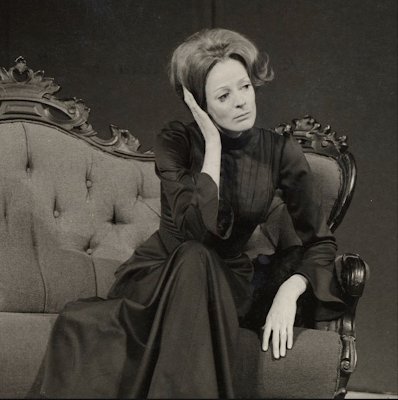IBSEN À LA CARTE
On 18 July 1970, Clive Barnes wrote a review in The New York Times on two interpretations of ‘Hedda Gabler’ by Henrik Ibsen – by Miss Worth (in Ontario) and Miss Smith (in London). He found them extremely different but equally valid. The latter was directed by Ingmar Bergman, whose interpretation ‘eloquently scales down the play to a point where heroism is an illusion and tragedy a lapse of good manners’. Bergman’s ‘total concern is the sad littleness of life’. No heroics, no passion, like that of the Hedda played by Miss Worth. ‘Miss Smith is something both more wary and more vulnerable. She is suburban rather than patrician […] and there is a dry bitterness, a kind of sad humor, to her portrayal that in context is both sardonic and pathetic.’
It sounds convincing, but it wasn’t quite the case. I know. I was there in London. And saw Miss Smith in action – Miss Maggie still-going-strong Smith, to be more precise. She was electric on stage, dominating it by refusing to do so. And since I was brought up to believe that ‘heroism is an illusion and tragedy a lapse of good manners’, I was surprised that I could be so convinced by any play whatsoever, with my built-in distrust of ‘theatricals’. More means less if a concert by one classical guitarist on stage seems more powerful than a symphony orchestra at full throttle. Bergman took liberties with Ibsen, because he had his own obsessions and demons he wanted to get across. Miss Smith did the job.
ZKV91 (originally posted in 2019)

No comments:
Post a Comment